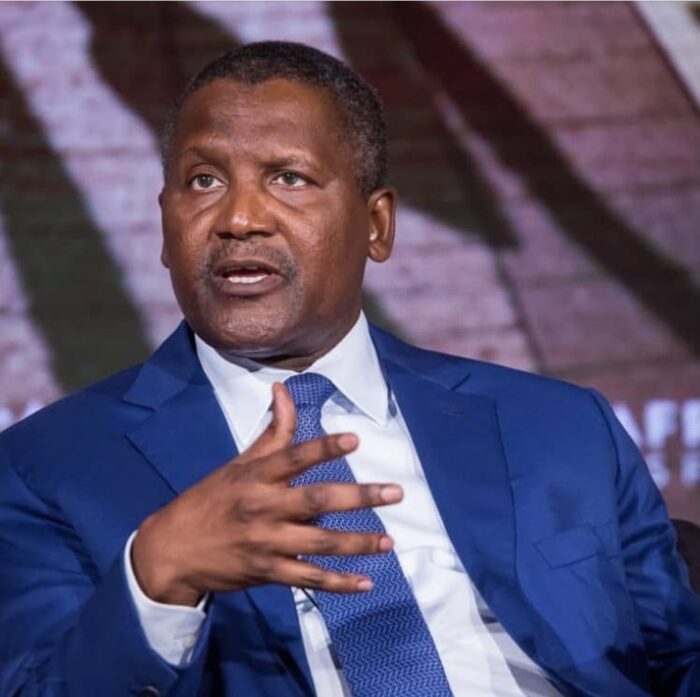A silence hangs over Nigeria’s highways a silence that speaks louder than the roar of diesel engines. It’s the silence from the twisted metal of another preventable crash, the quiet grief of a family forever broken, and the unsettling hush from the corridors of power in Abuja.
The recent, tragic death of the sister of reality TV star Phyna is not just another headline. It is a heartbreaking pattern: a life cut short in a collision with a truck bearing the name of Africa’s richest man, Aliko Dangote. Her story is a painful data point in a long and grisly national crisis. And as the casualties’ mount, the Nigerian government the institution sworn to protect its citizens remains a passive spectator. This deafening inaction forces every one of us to ask a difficult question: Who truly holds power in Nigeria?
A Trail of Tragedy, A Culture of Impunity
Phyna’s family’s anguish is a mirror held up to the nation. A Dangote truck is allegedly involved; one sister dies at the scene, another fights bravely before succumbing to her injuries. This script is familiar. From Lagos to Kano, on the East-West Road to the Abuja-Kaduna Expressway, the story repeats itself. Overloaded, poorly maintained trucks, operated by drivers who may be overworked or undertrained, have become rolling instruments of death.
We see the evidence on social media, in news reports, and in our own communities. The public outcry after each incident is fierce and justified. Yet the official response is a predictable cycle: empty promises of investigations, fleeting thoughts and prayers, and the nothing. No meaningful change, no stringent new regulations, no public accountability. The impunity is staggering. It creates a perception that there are two sets of laws: one for ordinary Nigerians, and another for the powerful whose economic weight excuses them from responsibility.
The Government’s Silent Complicity
The government’s greatest failure lies not in its actions, but in its refusal to act. This silence is a form of complicity. We see this failure everywhere:
• Regulatory Failure: Agencies like the Federal Road Safety Corps (FRSC) have a mandate to enforce safety standards. Yet, rickety, clearly unroadworthy Dangote trucks remain a constant, menacing presence on our roads. Where is the aggressive enforcement of laws on axle loads, mandatory rest periods for drivers, and vehicle maintenance? The system appears designed to look the other way.
• Justice Denied: When accidents happen, the path to justice is often slow, opaque, and stacked against grieving families. Cases stall, evidence vanishes, and ordinary citizens are left to battle a corporate giant with limitless resources. The government’s duty to ensure swift, transparent justice remains unfulfilled.
• A Moral Vacuum: The profound silence from the Presidency and the National Assembly is perhaps most deafening. Where are the summons for corporate leadership to explain these tragedies? Where are the urgent public hearings and presidential directives? This lack of moral leadership suggests a calculated avoidance of confronting a powerful economically.
The Dangerous Myth: “Too Big to Regulate”
Some may argue that the Dangote Group’s immense contribution to the economy through jobs, taxes, and essential goods makes it indispensable. But this argument is profoundly dangerous. No corporate entity, however large, should be above the law. The primary business of government is the welfare and security of its people, not the facilitation of profit.
By tolerating this impunity, the government endorses a toxic idea: that economic power can buy immunity. It tells ordinary Nigerians that their lives are negotiable, mere collateral in the pursuit of corporate growth and GDP figures. This creates a two-tiered citizens hipbone for the powerful and connected, and another for the rest of us, who must simply hope for mercy on the road.
A Call for Moral Courage: Who Does the Government Serve?
The Nigerian government must now provide an answer, not with words, but with action. It must demonstrate who it truly serves. It is time to end the silence.
We call on our leaders to:
• Initiate an independent, public audit of the safety protocols and maintenance records of all major haulage companies, starting with Dangote’s fleet.
• Empower agencies to enforce the law without fear or favor, holding company management directly accountable for systemic negligence.
• Ensure transparent and swift justice for all victims, including Phyna’s family.
• Convene a National Assembly inquiry into the deadly culture of impunity surrounding commercial haulage.
The blood of innocent Nigerians staining our highways is a stain on our national conscience. Every life lost is a verdict on the government’s priorities. The continued silence is an answer in itself a betrayal of the sacred trust placed in our leaders. Until decisive action is taken, the haunting question will remain:
“Is Aliko Dangote more powerful than the Nigerian government? The evidence, written in our collective grief, suggests our leaders are afraid of the answer?”.




























